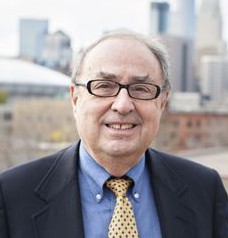The First 100 Days: Ten Things a New ED Should Do
Whether one’s first ED position or one’s Nth time around, there are some universally important, critical things to do in the first 100 days on the job, but often are not done, for a variety of reasons, most of which aren’t valid.
Sometimes those not done come to haunt the ED.
Here are ten of the most vital. There are more.
1.Walk around and meet all of the staff. Arrange to meet with others not on site or away. Try to remember names and jobs; use mnemonics if they help. Continue these walks daily. You’ll see a lot, hear even more, and learn.
2. Get to know those who report to you in-depth. Take them all out to dinner early. Later in the first 100 days, have them, spouse, others, to your home. Understand their strengths and weaknesses and build on their strengths. Build trust, confidence.
3. Probe deeply into operations. You need to know not only mission, vision, articles, by-laws, audits and 990s inside and out, but also the infrastructure and the processes which produce your service or product. Talk to those “on the line.” With their supervisors, develop training to empower them to do their jobs better and with more personal and professional satisfaction. Leadership emanates from the bottom up in highly successful organizations.
4. Personally visit constituents. This includes all of your Board, important former board leaders, founders, major donors, business executives, directors of allied and even competitive groups, civic leaders and nonprofit community representatives.
5. Maintain an open door policy. There never is a rush, but every once in a while important information comes through the open door. For all visitors ensure physically and psychologically that your office is inviting. Eliminate barriers; push your desk up against the wall so it is not a barrier between you and visitors. Ensure that you and your assistant are welcoming, greeting all in a warm manner.
6. Understand that you are the chief development officer. Ensure that the development director understands this and provides management of the development program, the infrastructure, the research, the materials, the processes so that you can represent the institution in a highly professional manner.
7. Discuss and come to an understanding on the role of the chair and of the board. Cover governance, planning, policy, finance, and, especially, development. Ideally, the chair is the chief development volunteer, leading most other board members in development roles.
8. Introduce Performance Management and Continuous Quality Improvement. Ensure understanding of the concepts and arrange for training in the essential elements of such management. Use CQI, 6 Sigma, Lean methodologies to achieve higher and higher levels of productivity and quality. Introduce metrics that will allow demonstration of outcomes, results and impact, hopefully on a comparative basis.
9. Assume the role of chief revenue officer. Given the financial environment in which most nonprofits find themselves, revenue to achieve mission is of the highest priority. Use traditional and alternative sources to develop the revenue model necessary for significant survival.
10. What will your legacy be? Most important, yes, decide in the first 100 days what your legacy will be in terms of program and in terms of management. What are the most important substantive innovations that can be introduced to better achieve mission? Select from options developed. Drive these goals with passion, commitment and meaning throughout your career if they prove successful. If not, start over with the learning gained.
We will have new EDs in, perhaps, one-third of all of the one million nonprofits in the next few years. Hopefully these ten will help in this massive transition.


You’ve lived and exemplified this. Thank you.
Hi Jim,
This is a great list! Thank you for sharing it.
This is not only an excellent list of things a new ED should do in his or her first 100 days but it is also a good list of things to think about for current Executive Directors (including me!).
It is always good to hear from you,
Craig
Craig Luedemann Executive Director YouthCARE 2701 University Ave. SE, Suite 205 Minneapolis, MN 55414 612/338-1233 (ext. 20) http://www.YouthCAREmn.org ________________________________
Thanks so much for your comments. jim
Thanks so much, especially coming from such a respected and successful ED.
[…] 9. The First 100 Days: Ten Things a New ED Should Do […]
[…] 9. The First 100 Days: Ten Things a New ED Should Do […]